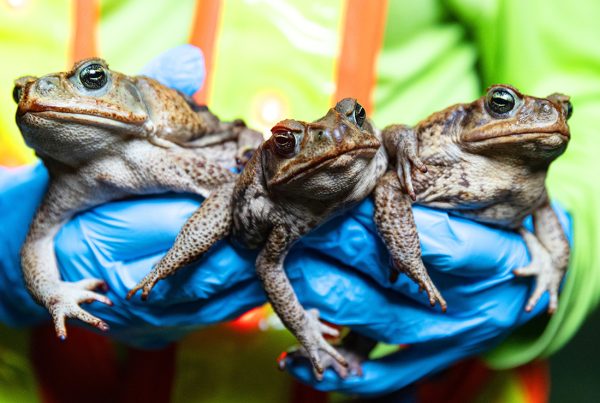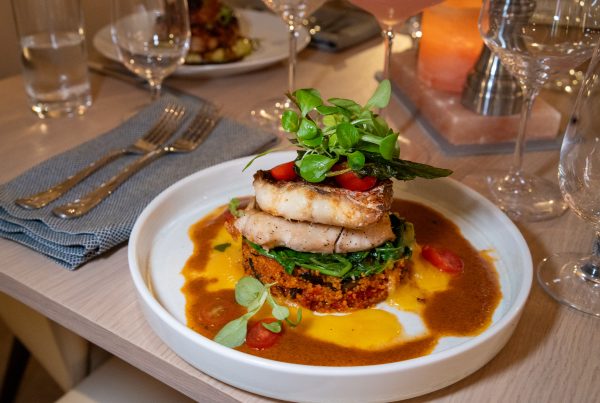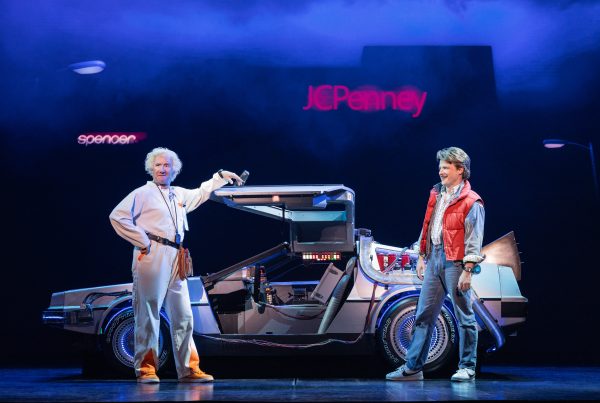South Florida comedian Brittany Brave made national news last month when she produced and co-hosted a savage roast of Diddy at a pop-up club in Little Havana. A fundraiser for the National Domestic Violence Hotline, the June 8 event was attended by Diddy rival 50 Cent, who joined in the revelry at the expense of the disgraced hip-hop mogul. Diddy is facing charges of sexual assault, physical abuse and sex trafficking in six separate lawsuits.
Brave is a domestic abuse survivor herself, and her advocacy on the issue is personal; she even appeared on TMZ to discuss the fallout of the roast. But as Brave reveals to Boca magazine, roasting isn’t exactly her forte. She’ll be most in her element this weekend, when she headlines a pair of standup shows at 7:30 p.m. Aug. 2-3 at Boca Black Box 2.0, 8221 Glades Road, Suite 10, Boca Raton.
“It feels good to be able to have a hand in writing South Florida comedy, and hopefully putting it on the map, and changing the reputation that we don’t have any good comedians down here,” she says. “Slowly but surely, we are convincing people otherwise.”
Let’s start with your roast of Diddy at the Dead Flamingo Pop-Up in Miami, with 50 Cent in the audience, and your interview on TMZ. Has this event raised your profile and brought more attention to you as a comic and entertainer?
It definitely has. Being on TMZ was not a part of my 2024 bingo card. I never thought in a million years that would happen. But it is cool. Even more so than raising my profile as a comedian, it raised my profile in terms of the advocacy that I do for domestic violence. I’ve had a lot of people who have been touched by the issue reach out and say that it helped them, and gave them answers to certain things. I couldn’t imagine a better reason to end up on TMZ than for that. I could have ended up on TMZ for being topless in a gas station or setting something on fire, and that wouldn’t be as ideal as for raising money for a good cause.
Roasting is a specific skill in comedy; not every comedian is going to be successful at it. What are the dos and don’ts of roasting?
The funny part is that I’m not a good roast battler myself. There are a lot of comedians who frequent the roast battles, and they climb up those ranks. When I roast, I roast the audience and myself, and my experience with roasting has been really off-the-cuff, organic and through crowd work. The ironic thing about this is that I don’t have an extensive resume in roast battles. But roasting a billionaire abusive pedophile feels fair. And it’s a celebrity, and there’s a distance, thankfully, between Diddy and I. And it’s pretty undoubted that his behavior is despicable and that he’s a monster. Something like that feels very fair game, and therapeutic, to roast.
In terms of roasting, you’ve got to be a good writer to be a good roaster. You’ve got to know your stuff. You’ve got to know the touch points. You’ve got to know the things that you can poke at. Maybe a little less when you’re roasting a billionaire pedophile celebrity, but when you’re roasting just another comic or another human being, you also have to know your boundaries about what can be touched on, what should be stayed away from—that’s a big one in roasting, too. And also, roasting is taking the ugliest parts or the most embarrassing parts of somebody and poking at them. I think you always try to punch up in comedy, which is basically just writing a well-crafted joke. You’re coming from a good place; it’s a fair fight.
That’s why in roast battles between non-celebrities, comics usually meet up beforehand. There’s a lot of communication before a roast, believe it or not. Even the person being roasted usually provides information, like, “make fun of the fact that I’ve been divorced, or that I’m overweight, or that I can’t dance.”
With somebody like Diddy, we had years and years of accusations and crimes and footage and terrible, malicious things. That’s where we pulled from. We pulled from news stories and camera footage and court documents, and roasted not even him but roasted abusers—roasted that behavior to bring awareness to everything.

Is there a difference in roasting out of hate, as opposed to roasting out of love?
Yes, a lot of times you’re roasting out of love, and the comedians know each other, and they’re friends, and that’s what makes it so fun. That was a big distinction with Diddy. It was roasting out of hate and fear and disdain. His behavior was clear, the evidence has surfaced, so it’s just kind of roasting this guy who’s denying all these clear claims of abuse and rape and molestation. There were even things we learned that we were not aware of, just through producing this roast. But again, he’s had 20 years of this. As we joked, he wasn’t invited to the roast. We didn’t need to hear a rebuttal from him. We’d heard enough from him.
When you do a standup set like at the Boca Black Box this weekend, what’s your style onstage; are you like an observational comic, a political comic, an absurdist comic? How do you see yourself?
I’m definitely not a political comic, but I think now it’s hard not to be a political comic, just because if you are a living, breathing, somewhat aware human being and citizen of the world, times are crazier than ever, and you’re probably being impacted by something. … Aren’t we all political comics in some way now? How do you not address this stuff?
But for the most part, I’m pretty autobiographical. If it’s very personal to me, if it happened to me, and/or it elicits a reaction from me, or if I feel connected to it, it ends up in my set. I’m really raw. I’m really personal. I’m definitely not clean. I do work clean, but I’d rather have no restrictions on what I can say up there, because comedy is the ultimate free speech. I guess I’m a little observational; we all are. It just depends on what sticks out to you—what you feel compelled to write about. That in and of itself defines who you are as a comic.
There’s been an ongoing debate in comedy about how the good old days of getting to say whatever you want onstage are gone, and free speech is under threat from cancel culture. Where do you stand on this, and have you ever felt like you’re constrained in what you can say onstage?
It definitely is an interesting time to be a comedian, and I do think there’s a lot of woke P.C. warriors and a lot of virtue signaling and a lot of sensitivity that wasn’t there before. But I also see both sides to this, and I also think there’s a lot of comics that aren’t going about it the right away. A lot of them will tell you, “God, you can’t say anything anymore. Free speech is dead. Comedy is not what it was.” And you say, “OK, sure, but you’re also onstage dropping racial slurs and saying terrible things. You objectively have a terrible, not well-thought-out take on something.”
I think that things are a little more sensitive, and the stakes are higher now in 2024 for comedy, because of the internet and the political climate and cancel culture, but I also think it’s the same. I think if you told a really out-of-pocket, poorly written joke in the ‘80s, you probably wouldn’t be well-received then either. I think it’s extremes on both sides.
I definitely think comedians shouldn’t tiptoe around that, because that is the death of comedy. Once you start worrying too much or toning yourself down and getting in your own head, that is the death of comedy. Comedians have to continue to do their thing and observe and say the truths nobody else wants to. As long as it’s funny, you can get away with it.

I understand you do improvised tarot readings. Tell us about that.
I’ll probably do them this weekend in Boca. It’s a really fun, silly, stupid show. It’s super-interactive. I and some of the other comics on the lineup bullshit tarot readings for audience members. And I read tarot a little bit; I’m familiar with that stuff. I joke that I’m a broken Catholic and a white woman, so obviously I’m into the dark arts. I love astrology and tarot and crystals and ghost stories. And I also did a lot of improv. Improv is primarily what my creative background is in. I used to have a bit about male friends of mine that had tarot cards, and they had no idea what they were doing, and they sounded like they were BSing their way through. I was like, why would you trust a man to give you an intuitive reading? That would be my bit.
And then a couple of years ago in New York, I thought, this could actually be funny: Imagine a bunch of comedians that probably already are bad at giving advice, audience members share their problems, nobody really knows tarot, it’s silly, we’re just flying off the cuff, and then I come in at the end, and since I know a thing or two about it, I try to impart some wisdom to the audience. I always close my headline sets with it.
In your TMZ interview, you called comedy the most vulnerable art form in the world. Can you elaborate on that?
The comedian’s job is to be themselves. And you’re out there by yourself with your perspective, your personality, your jokes, your premises. You’re not backed by a band, you’re not hiding behind a melody. You’re not an actor who can do despicable things onstage, but it’s not them doing it, it’s their character. You start from scratch in every way possible with comedy. And it’s also vulnerable because our process, in order to figure out if something works or not, is vulnerable. You can’t stay cooped up in your house and just write jokes and practice them in the mirror. The only way you’re going to know if something is funny and relatable and relevant and interesting is to take this brand-new thing that you’ve written, and that was born out of your brain and your experiences and your perspective and your personality and your feelings, and go up in front of a room full of strangers and see if it works.
And it’s just you up there. And you’ve got to sell them on why this is true and relatable and funny, and you never know what you’re dealing with in terms of the crowd each night. You never know what you’re dealing with in terms of their mood, their political stance, their vibe, their perspective, their language barrier. It’s vulnerable, because who you are as a comedian comes through in your comedy. How would it not? Otherwise you’re a hack.
Catch Brittany Brave at 7:30 p.m. Aug. 2-3 at Boca Black Box, 8221 Glades Road, Suite 10, Boca Raton. Tickets cost $28. Call 561/483-9036 or visit bocablackbox.com.
For more of Boca magazine’s arts and entertainment coverage, click here.







